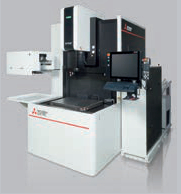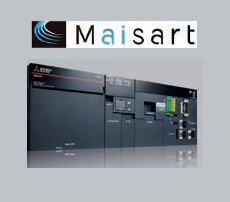Artificial Intelligence, or AI for short, is a field of research in computer science that attempts to engineer computer programs with human-like perceptive abilities and behaviour.
What is artifical intelligence?
In Stanley Kubrick’s film “2001: A Space Odyssey” there is already artifical intelligence that foresees AI abilities like error detection, control, speech recognition and speech output. In 1997 chess computer Deep Blue beat world champion Garry Kasparov. Artificially intelligent AlphaGo beat the Korean Lee Sedol, one of the best players in the world 4:1 in 2016 at the board game Go, which is significantly more complicated than chess. Just a year later, AlphaGo lost to its sucessor program AlphaGo Zero, which beat its predecessor by 100:0. But in spite of all these advances, to this day we have not even come close to recreating the human mind in the form of a thinking machine.
Artificial Intelligence, or AI for short, is a field of research in computer science that attempts to engineer computer programs with human-like perceptive abilities and behaviour. Relevant issues include the automation of intelligent behaviour and machine learning. AI is the attempt to engineer human decision-making structures in the form of algorithms that enable computers to solve problems independently. However, machines that react intelligently and behave like humans remain a thing of the future. For instance, small children only need exposure to just a few cats to develop a concept for “cat” – whether it is a stuffed animal, a drawing or a live animal. In contrast, a computer needs hundreds or even thousands of attempts to develop a similar cat-differentiation concept. At the same time, there are already a broad range of applications that put AI to use.
Deep Learning, Reinforcement Learning und Data Analysis
Deep Learning
The human brain is simulated as a mathematical model in a neural network. Conventional machine learning increases its performance, though the machine learning algorithm causes considerable computing costs and takes up a lot of memory. Mitsubishi Electric has used more effective network structure and calculation models to develop a novel deep learning algorithm that provides a more compact AI with the same inference performance as conventional AI. Our compact AI cuts computing costs and memory requirements for image recognition by up to 90 per cent.
Reinforcement Learning
Computers generally act according to programs written by people. With reinforcement learning, computers can learn to understand situations, create their own rules and take action independently. To do so, they have to gain experience, which includes failing, just as humans would. In purely practical terms, a computer makes repeated attempts at action during reinforcement learning, which are then evaluated according to how well the computer achieved its goal. It revises its decisions in order to obtain a higher rating, gradually getting closer to its objective.
Data Analysis
Big data (amounts of data that are too large, too complex, too short-lived or too unstructured to be evaluated with conventional forms of data processing) includes data that might be generated by people or things (e.g. device sensors). It is above all the latter that is rapidly increasing with the spread of the “Internet of Things” (IoT). So edge computing, which can quickly and reliably process AI high-level big data analysis at the local level without using the cloud or placing a strain on data communication, has been getting a lot of attention.
Mitsubishi Electric’s AI solutions
Artificial intelligence is used in a wide range of Mitsubishi Electric products. The entire bandwidth of AI technologies is bundled under Mitsubishi Electric’s Maisart umbrella. In keeping with the company’s “Original AI technology makes everything smart” philosophy, Mitsubishi Electric uses its own AI solutions and edge computing to create products that are intelligent, more secure, more user-friendly and convenient for everyday use. Mitsubishi Electric’s AI-related activities are focused on compact deep learning algorithms, efficient reinforcement learning and high-performance big data time series analysis.
The goal of Mitsubishi Electric’s development work is to develop AI systems at a significantly lower cost and with fewer server and network requirements than conventional systems, which rely on servers that collect enormous amounts of data. A welcome side effect: the result is a highly secure computing environment that eliminates the need to upload confidential information to servers and works without a network connection

machines from the SV-P series to work up to 30%
faster using proprietary AI technology.

enables local real time edge-based data analysis without server support or network load.



